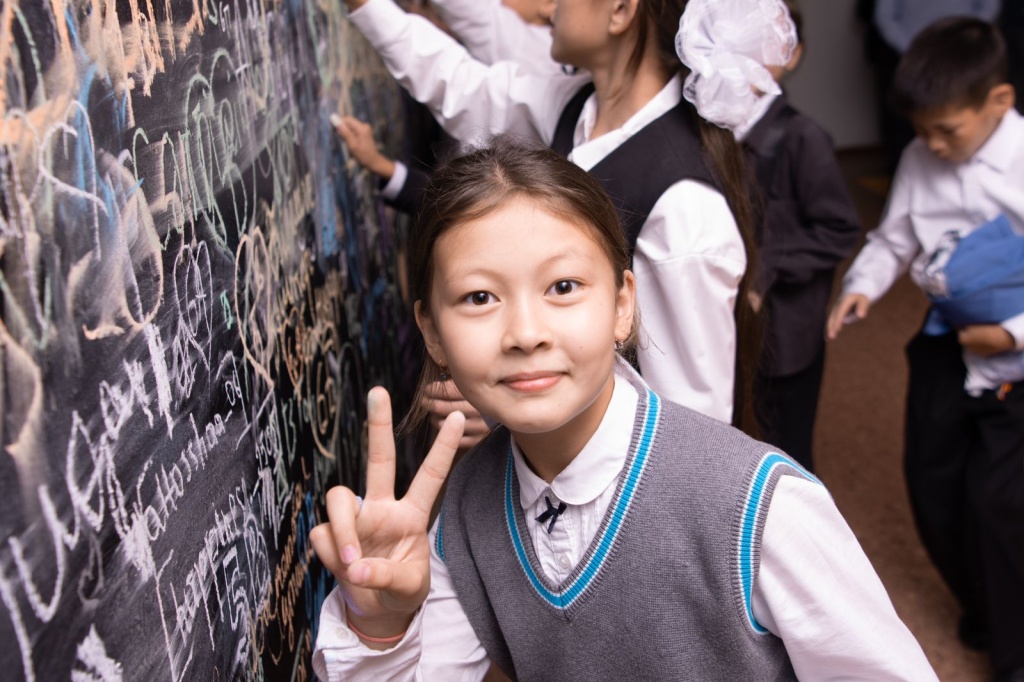Small Schools – Big Changes – Yeraly Togzhanov
In recent years, there has been a significant outflow of people from rural areas. Why are people leaving villages? The primary reason is the lack of comfortable living conditions. Sixty percent of those relocating are young people. For example, in the Aktobe region alone, 17,000 people moved out of rural areas in 2020–2021. However, even when people leave, the problems of rural areas do not disappear—on the contrary, the situation worsens. Over time, schools shut down, infrastructure deteriorates, and eventually, villages cease to exist. Each year, 75 rural schools are closed across the country.
To retain the population in rural areas, it is necessary to provide jobs, improve social well-being, and create sustainable income sources. One of the most critical factors is access to quality education. Still, even if all conditions are created, there is no guarantee that people will stay. We can slow migration, but we cannot stop it completely. If quality education is not available in a village, parents concerned about their children’s future will still seek to relocate.
While serving as Deputy Prime Minister, I launched the “Auyil Amanaty” (Village’s Legacy) project in the Zhambyl region. Later, as Akim of the Aktobe region, I had the opportunity to implement it at the regional level. The issue of rural education development became a priority. The key question emerged: What should be done? This led to the creation of the “Bilim ALL” project, whose main goal is to improve the quality of education in rural areas.
The quality of education is directly linked to the availability of qualified professionals. However, a shortage of teachers in rural schools remains one of the most pressing challenges. Every year, each region lacks about 200 specialists, especially in subjects like physics, chemistry, and English. To address this, we developed a special program that assessed students' educational performance and trained teachers to provide online instruction. Research showed that the level of knowledge in small multigrade schools was 15% lower than in schools in regional centers.
In 2023, Minister of Education Gani Beisembayev, after seeing the project's results, declared the Aktobe region a national hub for small school education. In just the first year of the project’s implementation, the gap in academic performance between rural and urban students decreased from 15% to 10.3%.
Colleagues from the Fund for Sustainable Development of Education reviewed and fully supported the project—not just in words, but through substantial financial contributions. Their experience helped establish a system for interaction between small multigrade schools and support schools. As a result, a comprehensive project was born: small schools began participating in online education, rural institutions began forming networks around support schools, and most importantly, a teacher professional development program was launched. Together with the “Qazaqstan Khalkyna” Foundation, we have proven that quality education can reach every child in a rural area. Such a project was urgently needed, and I gave it my full support.
Recently, the Prime Minister visited the village of Badamsha in the Aktobe region, praised the project's results, and instructed that it be scaled up nationwide. Regions like North Kazakhstan and Kostanay, where the share of small schools is particularly high, are in great need of such an initiative. Therefore, it must be implemented not only at the regional level but across the entire country.
I am confident that these initiatives will be successfully implemented at the national level. After all, the development of a state depends directly on its human capital. The projects carried out by the Fund for Sustainable Development of Education are a powerful tool for nurturing that capital. They lay the foundation for economic growth, social stability, national security, and the future prosperity of the country.
This year, the Fund faces new and ambitious challenges. We will work in partnership with all stakeholders to ensure the successful implementation of educational initiatives in rural areas. I am confident that, through our joint efforts, we will achieve our goals.
Sincerely,
Yeraly Togzhanov
Co-Chair of the Board of Trustees
Fund for Sustainable Development of Education



